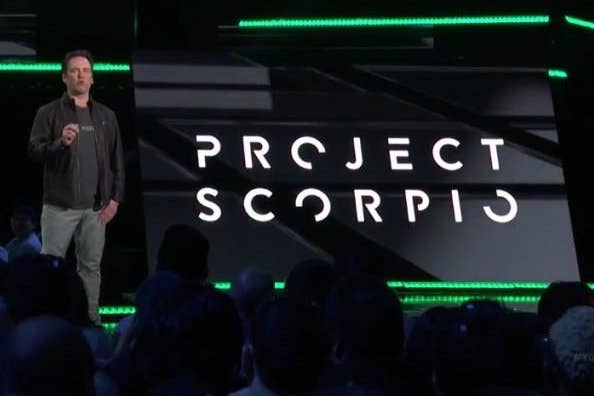"We're not creating haves and have-nots"
New consoles will not split the market, Sony says, but in its Project Scorpio VR push can Microsoft also keep that promise?
Shawn Layden has aligned Sony with Microsoft on its approach to the high-powered Neo console, insisting that the introduction of new hardware within a console cycle is not about, "creating have and have-nots."
Sony Interactive Entertainment's chairman told Time.com that he was "in agreement" with Phil Spencer's 'no gamer left behind' rhetoric when Microsoft announced Project Scorpio at E3 this week.
"With this move towards a high-end PS4, it's not to bifurcate the market," Layden said of PlayStation Neo, which Sony announced last week, away from the E3 stage. "We're not creating haves and have-nots. There's only going to be one game on sale, and it will play on both [consoles]. You'll have the same experience, but one will be delivered at a higher resolution, with an enhanced graphical experience, but everything else is going to be exactly as you'd expect."
"There's only going to be one game on sale, and it will play on both [consoles]"
Shawn Layden, PlayStation
According to Layden, though, while both companies are taking a "similar course" in terms of innovating on hardware within a console life-cycle, there are likely to be key differences in the details. "It's nothing that's ever been done before, so there is no road map to how to do that," he continued. "Both companies are trying to find the right way to bring that to developers, to bring it to market, to talk about it."
So far, Microsoft has been more forthcoming in the details of its plan, not least because of some key performance figures it revealed in a video released at E3. Project Scorpio will have an 8 core CPU and a 6 teraflop GPU, with the promise of rendering at 60Hz and, "true 4K gaming." The GPU, in particular, is a key difference between Scorpio and Neo, with Sony's console rumoured to be shipping with a 4.2 teraflop GPU.
"It's a remarkable turnabout," said Digital Foundry in a report published on our sister site, Eurogamer. "A good portion of PlayStation 4's success has been down to its spec advantage over Xbox One, combined with a focus on the hardcore player.
"No one gets left behind"
Phil Spencer, Xbox
"Sony's technological advantage will be gone with the next wave of hardware - we already know that it cannot support true 4K resolution on cutting-edge games, because we've seen the internal documents that outline Sony's upscaling strategies for 4K display support (more on that soon). It's also unfeasible for Sony to produce a radically revised Neo - the silicon has been designed, developer kits have gone out. Matching Scorpio would require scrapping Neo's existing processor completely."
Compatibility with VR is an important aspect of Microsoft's thinking here, with Scorpio's specs indicating a push towards supporting existing headsets like HTC Vive and Oculus Rift. Microsoft is developing AR hardware in the form of HoloLens, but it has made no announcements regarding a first-party VR device. Indeed, in an interview with Wired, Phil Spencer said, "Right now, we are not focused on a first-party VR hardware device," adding that Microsoft will, "enable many hardware manufacturers to make progress there." This impartial stance is evident in Windows Holographic, a version of the ubiquitous operating system that will support VR and AR devices of all kinds.
Spencer also said that the 6 teraflop GPU was "a requirement" set following conversations with VR developers, and a capability that, "today's consoles-PlayStation 4 and Xbox One-don't have."
"The truth is, a console that can run a 2-D version of Doom or Fallout today, which a PS4 and Xbox One can, is not going to be able to do a stereoscopic, high-framerate version of those games," he says. "We don't want to force VR into a middle ground between the scale that we see in mobile, and what our customers [expect]."
Whether intentional or not, this comment is one in the eye for Sony: PlayStation VR, which is built to work with PlayStation 4, cannot deliver the best possible VR experiences, and Neo, while more powerful, falls short of the standard required by VR developers.
In addition, though, Spencer's comments also reveal a flaw in the notion that Scorpio will not split the Xbox audience. If Xbox One lacks the power to support VR, and Scorpio is being developed with that in mind, the notion that "no one gets left behind" simply won't be true for virtual reality experiences.


